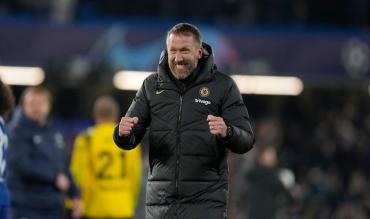It has not been the easiest of years for Chelsea, all things considered.
Back in March 2021, the UK government took the unprecedented step of sanctioning a Premier League owner, freezing Roman Abramovich’s assets and prohibiting any transactions with British businesses due to his links with Vladimir Putin.
In doing so, a club he had bankrolled for two decades was put in a state of paralysis, given a ‘special license’ to continue operating but unable to make a single penny of profit. Not even a branded pencil case could be sold in the club shop.
For a grim period that lasted several weeks the future looked extremely bleak for a club that had the latest replica of the Champions League trophy gleaming in their trophy cabinet.
There was widespread talk of a player exodus that summer. A grand total of 16 lucrative sponsorship deals suddenly came to an end.
For a while back there, the suggestion that Chelsea could simply cease to be, was not an overly ridiculous one.
The situation resolved itself when a consortium headed by the American billionaire Todd Boehly completed its takeover in late May, purchasing the serial league -winners for £4.25 billion and then came more transformative news, when Abramovich agreed to write-off a staggering £1.5 billion of debt that came in the form of loans owed to him.
With Chelsea securing a Champions League place, and now furnished with considerable funds to compete in the summer transfer window, it seemed crisis that bordered on outright catastrophe had been successfully navigated and a new chapter at the Bridge beckoned.
Only then the troubles continued, this time on the pitch as Thomas Tuchel was sacked just six games into this campaign and as the Blues slipped down the Premier League betting odds they turned to Graham Potter, a manager who was – unfairly or otherwise – cast from the outset as someone out of his depth at such a huge institution.
Over-achieving with Brighton was one thing, but could the 47-year-old accrue three points on a weekly basis when they’re demanded, not merely hoped for? And could he do so while managing and massaging superstar egos into the bargain?
Early indications were positive, with an eight-game unbeaten streak including two impressive victories over AC Milan in the Champions League but then reality bit and bit hard.
Exiting both domestic cup competitions to Manchester City, the Blues also spiralled dramatically in the league, winning just two of their 15 commitments between mid-October and the end of February.
At this juncture it was revealed that Potter had the worst win percentage of any Chelsea boss in the Premier League era.
Graham Potter has high hopes for Chelsea 🗣️ pic.twitter.com/hyyUlXS7cp
— ESPN UK (@ESPNUK) March 17, 2023
Naturally enough, around this nadir rumours began to circulate that Potter’s job was hanging by a proverbial thread but to Boehly’s credit he has repeatedly backed his manager, insisting this is a long-term project being undertaken and his coach is pivotal to it.
Further encouragement can be sourced in two recent wins in the league and crucially too progression to the last eight of the Champions League, though a last-minute concession to Everton this week may conceivably stall any momentum gained.
All of which brings us to the present and a largely traumatic season for Chelsea that is heading for its final straight. Potter remains short-priced in the betting to not see out the year.
The Blues meanwhile remain hopelessly adrift of a top four spot, with even qualification for the Europa League looking beyond them.
At least now though there are slivers of hope, where previously there seemed none.
Still, this is a club seriously troubled and even if crisis may be temporarily averted. This is a club in need of rehabilitation following a terrible year. The billion pound question therefore is how to heal and finally turn their fortunes around.
Looking for a solution leads us not to Potter but to Boehly, even if it’s critical that Chelsea’s under-pressure manager starts to get results from the ways and means he has implemented at the Bridge.
Should he not, then his employer’s patience will surely be tested to its very limits.
And oddly, it is Boehly’s patience that partly informs Chelsea’s problems, making up one half of a contradictory approach that has left them a chaotic mess at their worst and a barely functioning compendium of talent even on their good days.
Because on the one hand, the American practices sensible long-term planning and continuity by sticking with Potter.
On the other, he has overseen two frenetic and reactive transfer windows, full of scattergun signings so seemingly random it has seen him accused of treating his club as if he’s playing Football Manager.
Bringing in eight new players last summer at a cost of a quarter of a billion pounds, then signing eight more halfway through the season, for a further £150m, does not bring constancy. It reeks of rash and reckless irresponsibility. Moreover, it makes Potter’s job so much harder.
There is a deep irony here, because down the years a good deal of Chelsea’s success has come from investment, from buying the best of the best.
But now, with a squad packed with disparate, expensive talent, Boehly needs to put his chequebook away. He needs to trust in the manager he is happy to publicly back and let him coach.
*Credit for all of the photos in this article belongs to AP Photo*


